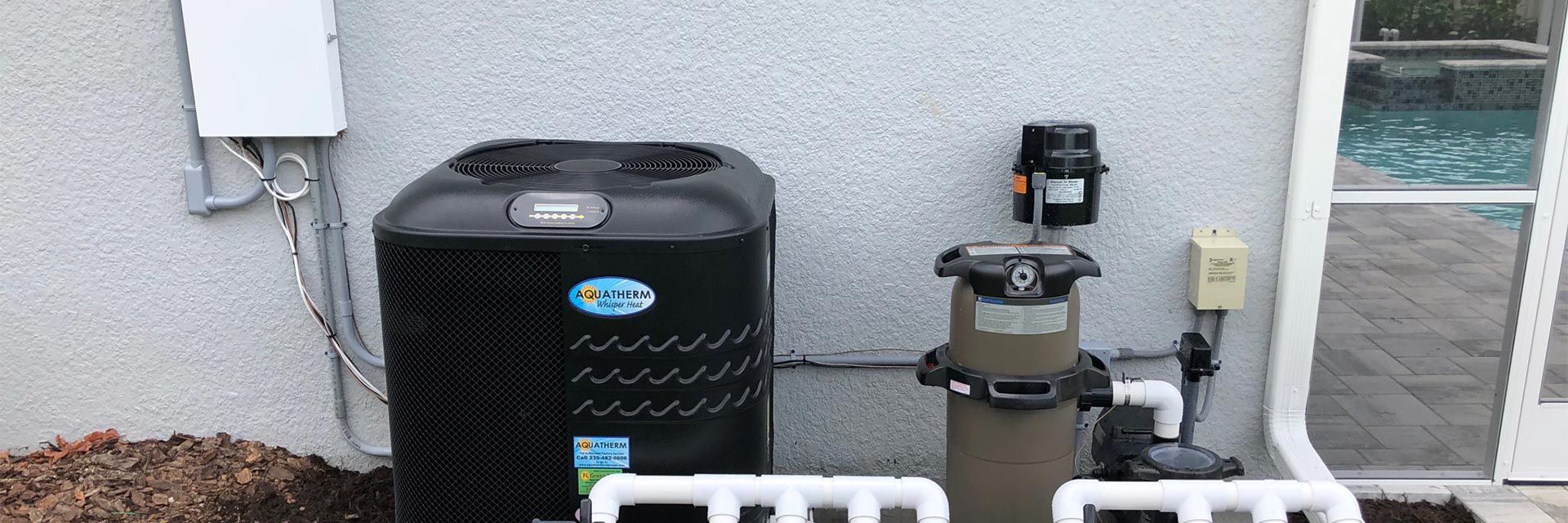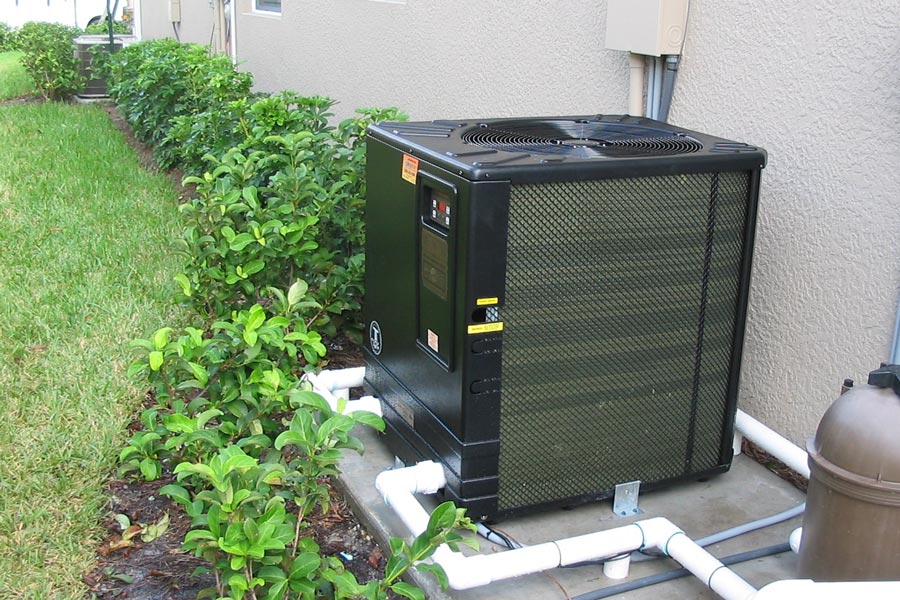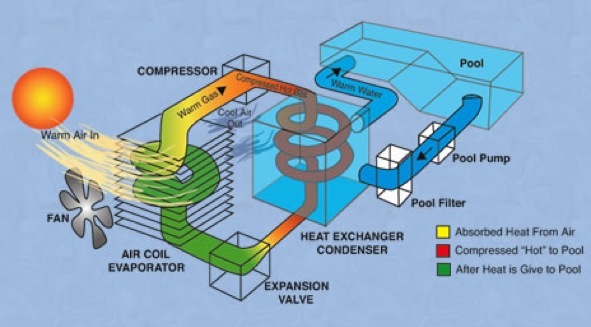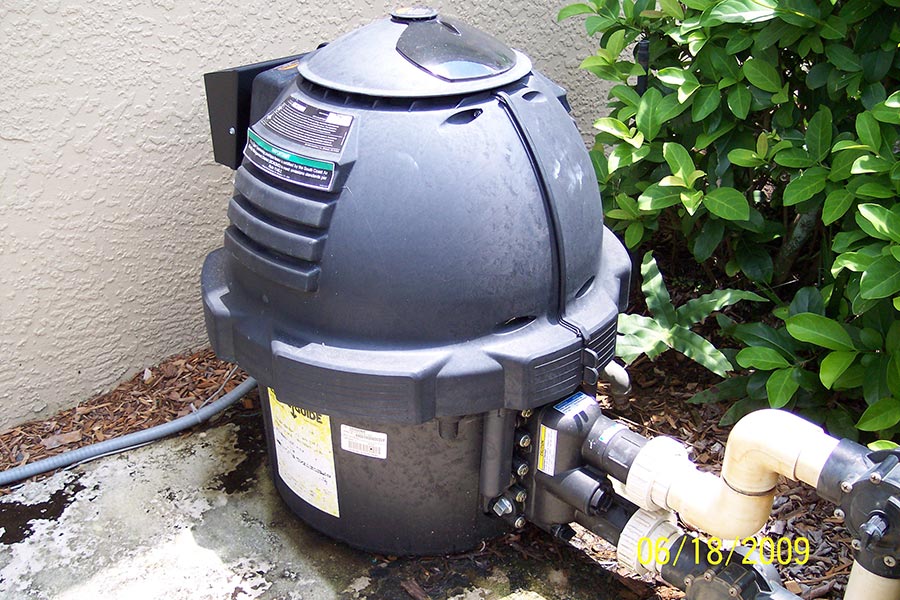
Pool Equipment: Heating & Automation
Since 2005, Splash Zone has been the TRUSTED name in pool equipment, heating and service. We offer swimming pool and spa equipment installation, repair and residential pool maintenance plans in the Bonita Springs, Estero, San Carlos and South Fort Myers areas. Scroll to read more about pool heating options for your home.
Pool Heat Pumps
- Year Round Swimming
- Low Operating Costs
- Quiet Operation
- Non-Polluting Heat Source
- 5 Year Manufacturers’ Warranty
- Titanium Exchanger Protects Against Chemical Damage

Capture Florida’s Warm Air Efficiently
Swimming pool heat pumps capture warm air and transfer it to your pool. They work best in air temperatures above 45–50°F, so they are very effective in South Florida’s mild climate. Swimming pool heat pumps do not have temperature limitations during cooler winter months and are not impacted during cloudy or rainy weather, so they can offer more consistent heating than a solar pool heater. Electric heat pumps are environmentally friendly and unlike gas heaters, they work without fossil fuels.

System Function and Sizing
A swimming pool heat pump extracts heat from the outside air and pumps the heat to your pool water. A high efficiency heat pump can heat your pool or spa to temperatures up to 104˚ F. Swimming pool heat pumps are sized based on your heating needs; using factors such as your pool size, temperature expectations and cover use. We recommend using an energy-efficient heat pump with a Titanium heat exchanger and scroll compressor which can offer a lower annual operating cost while protecting the unit from chemical damage.
Pool Heat Pump FAQ
How Does a Swimming Pool Heat Pump Operate?
Swimming pool heat pumps use electricity to capture heat and move it from the air to your pool. They do not generate heat, but rather work just like central air conditioning units, only in reverse.
Instead of removing heat from the inside of your home and expelling it to the outside air, a pool heat pump takes heat out of the outside air and transfers it into your pool water.
What Size Heat Pump Will I Need?
Heat pumps are sized based on your unique situation. Certain factors, such as the following, contribute to properly sizing for your pool:
- Pool Size
- Temperature Expectations
- Water Features (e.g. Spas, Waterfalls and Fountains)
- Blanket Use
Do I Need to Use a Pool Cover?
A cover is not necessary for most of the year in South Florida. However, using a pool cover can cut your heat pump’s wintertime operating expenses by up to 50%. Very simply, a pool cover will keep the heat in your pool.
Besides offering energy savings, pool covers also do the following:
- Conserve Water by Preventing Evaporation
- Reduce the Pool’s Chemical Consumption by 35%–60%.
- Reduce Cleaning Time by Keeping Dirt and Other Debris Out of the Pool

Gas/Propane Pool Heaters
- Fastest Style of Pool/Spa Heating Available
- Low Emissions for a Small Footprint
- Condensation-Free Operation
- High Efficiency Units
- On Demand Heat
Unlimited Temperature with Quick Results
Gas Pool Heaters use either propane or natural gas. As the pool pump circulates water, it is passed through the heater’s gas combustion chamber, which super-heats the water and returns it into the pool. Gas heaters are used if you require very warm spa or pool temperatures (85-104˚F degrees) regardless of the weather or climate. This might be important if you have an inground spa or swimming pool for therapeutic exercise. A gas heater is currently the most expensive way to heat your pool. It is best when installed as a hybrid system and used as a backup heater to supplement a primary pool heat pump.
